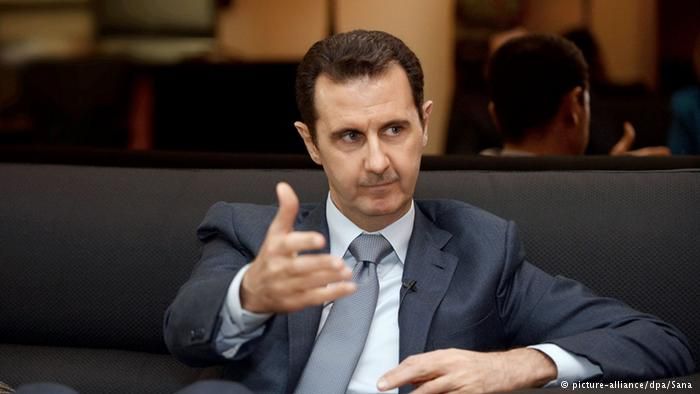 Syrian President Bashar al-Assad has accepted a ceasefire deal announced by Russia and the United States. The agreement which excludes the operations against "Islamic State" and Al-Quaeda should begin this weekend.
Syrian President Bashar al-Assad has accepted a ceasefire deal announced by Russia and the United States. The agreement which excludes the operations against "Islamic State" and Al-Quaeda should begin this weekend.
The foreign ministry in Damascus said the government would stop armed operations, but would "continue counter-terrorism efforts" against the Islamic State group, Al-Qaeda and affiliated groups.
"To guarantee that the cessation of hostilities will successfully start on the set date of Saturday, February 27, the Syrian government is ready to continue coordinating with Russia to determine the areas and armed groups that will fall under this ceasefire," the statement said.
The US and Russia announced on Monday that a "cessation of hostilities" would take effect this coming Saturday. US President Barack Obama and his Russian counterpart Vladimir Putin reportedly discussed the accord by phone.
While the Kremlin leader said it could "radically transform the crisis situation in Syria," the White House said it could help advance talks on bringing about political change in the country.
This truce deal does not apply to jihadists like the "Islamic State" group and the Al-Nusra Front, putting up major hurdles to how it can be implemented on Syria's complex battlefield.
Following the announcement of an imminent ceasefire in Syria, rebels have criticized an exception on bombing jihadi targets. The Free Syrian Army says this will provide cover, enabling Russia to bomb rebels.
Bashar al Zoubi, head of the political office of the Yarmouk Army, part of the rebel Free Syrian Army, argued that the ceasefire's exception for jihadi targets would provide cover for Syrian President Bashar al-Assad and his Russian allies, enabling them to continue attacking opposition-held territory, where rebel and militant factions are tightly packed.
"Russia and the regime will target the areas of the revolutionaries on the pretext of the Nusra Front's presence, and you know how mixed those areas are, and if this happens, the truce will collapse," he said.
Source: dw.com
 В Атырау -10
В Атырау -10